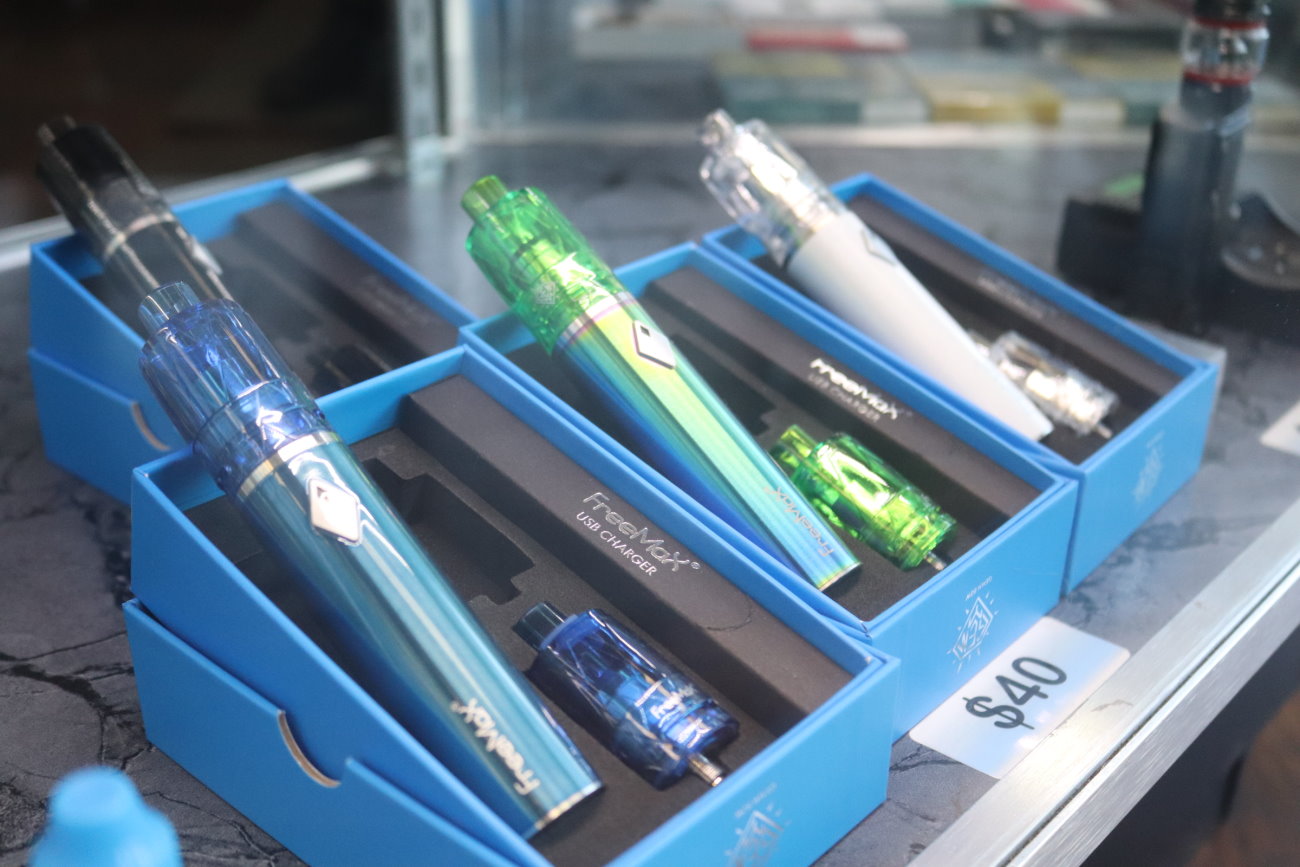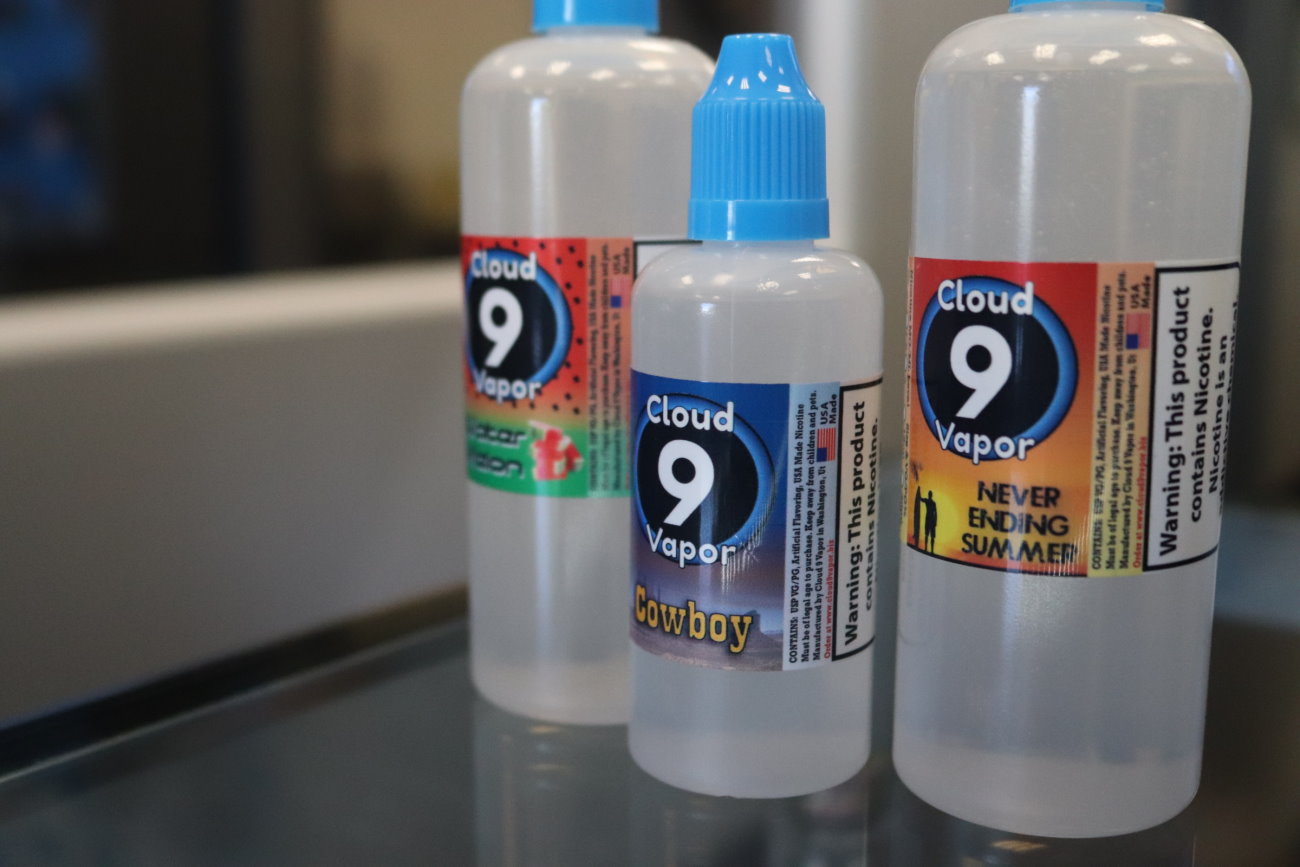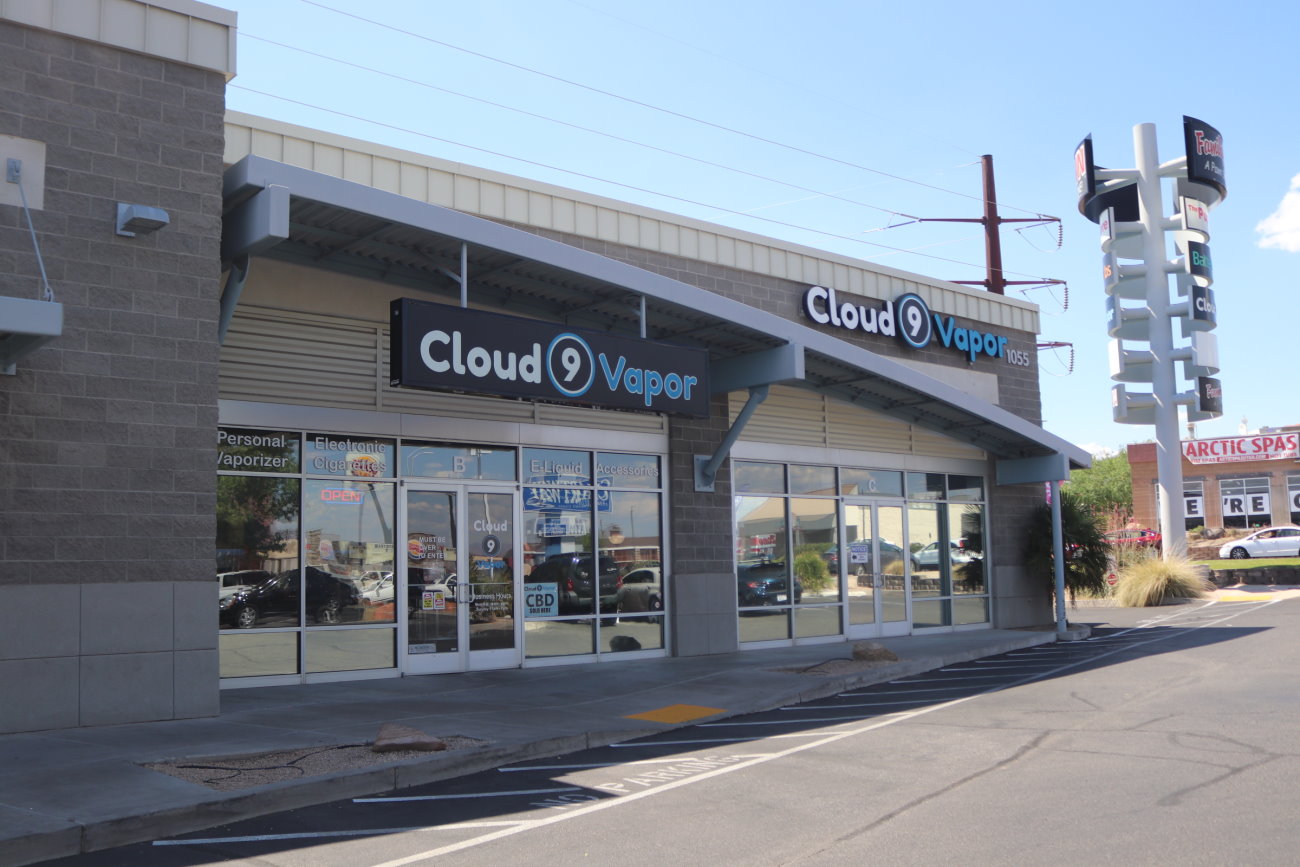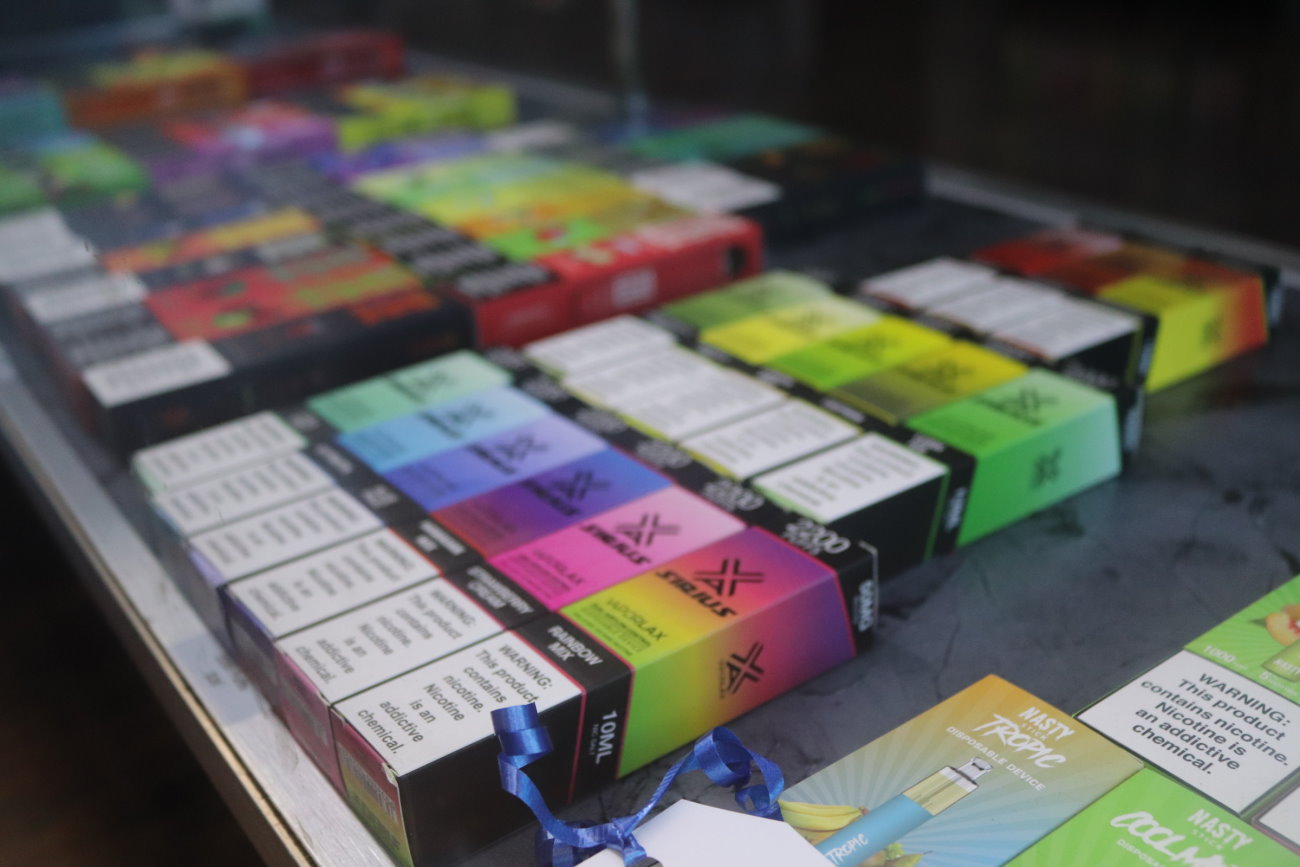ST. GEORGE — The owner of a local electronic cigarette shop is worried his business may be wiped out if new regulations proposed by the Utah Department of Health go into effect.

In a letter sent to e-cigarette retailers at the beginning of June, the Health Department said it plans to regulate package labeling requirements as well as limit the percentage of nicotine in disposable e-cigarette products.
The state also plans to begin enforcing federal regulations regarding tobacco-based products not registered and approved for sale by the U.S. Food and Drug Administration via its Pre-Market Tobacco Application process, which could take effect later this year.
Brendon Gunn, owner of Cloud 9 Vapor in Washington City, told St. George News he is concerned about the proposed rules due to the potential impact they could have on his business.
“Our business may not survive this,” he said.
Speaking for the Utah Department of Health, Ryan Bartlett, of the Health Department’s Tobacco Prevention and Control Program, said vape retailers shouldn’t fear the proposed regulations and that the state isn’t attempting to run them out of business.
“This is not something the Utah Health Department is doing to hurt the vape industry in the state,” Bartlett said.
The proposed rules are currently up for public comment until July 15, with a public hearing in Salt Lake City that will also be shared online Wednesday afternoon.
So what are the specifics of these proposed rules and why are they a cause for worry for a local vape shop owner?
Nicotine percentage content in disposable vapor products

According the letter sent to vapor retailers across the state, the Health Department proposes to restrict the sale of disposable vape products with a nicotine content of greater than 5% by weight per volume, or exceeds 59 milligrams, starting July 22. This would be dropped further to a content no greater than 3%, or 36 milligrams, as of Sept. 1.
“In our experience, what we’ve found is most of the companies do not produce lower milligram-strength nicotine,” Gunn said, adding a move from 5% to 3% nicotine content will wipe out a large portion of his business.
There are popular e-cigarette brands that do sell the lower nicotine concentrations, such as Juul, which is among the most popular brands of e-cigarette products in Utah, Bartlett said. The Health Department has already set a 2% content limit, 26 milligrams, in place on non-disposable vape products, he added.
While Cloud 9 Vapor does offer some Juul products, the sales are microscopic compared to the rest of what the shop sells, Gunn said.
A vast majority of the store’s disposable vape offerings are also in the 5% range of nicotine content. Limiting that to 3% will negatively impact not only them, but the vape industry across the state, said Vincenzo Porter, Cloud 9 Vapor’s regional manager.
“The majority of really every store’s product in Utah would be heavily diminished,” Porter said, adding it will severely limit the freedom of choice adults currently have when it comes to cigarette alternatives.
As an example of the impact the proposed regulation could have, Porter said it would be like going from hundreds of product options to less than 10 that customers could choose from.
“This is forcing products on them,” he said.
Pre-Market Tobacco Application worries

According to the FDA, a PMTA is to be submitted to the FDA when any new tobacco product is created and has to provide scientific data related to current regulatory standards, how the product is made, that the product is not an overall threat to public health and so on.
The rule primarily focuses on manufacturers of new or modified tobacco-based product – such as the “vape juice” used in e-cigarettes. Those producers that are able to get an application approved and their product registered have the FDA’s approval to continue selling and marketing them. Those vape companies that have not submitted a PMTA – in this case prior to Sept. 9, 2020 – may be considered in violation of the rule.
However, enforcement of the PMTA rule has been delayed for various reasons, with a court-ordered moratorium on enforcement set in place until early September. Recently, the U.S. Small Business Administration asked the FDA to continue delaying enforcement. In a letter sent to the FDA, the Small Business Administration argues the agency isn’t giving itself enough time to review the application it has already received.
In its letter to vape retailers, the Utah Department of Health said it will be enforcing FDA’s application rules on non-compliant products once the federal agency chooses to enforce it themselves. The FDA is anticipated to start enforcing the PTMA process by Sept. 9.
“This will make the majority of these products illegal immediately,” Gunn said. He said he believes the state may go ahead and seek to enforce the PMTA rules before the FDA does. “They’re trying to enforce federal laws the federal government isn’t even enforcing right now.”
There are many producers of tobacco products that are not PTMA-verified, Gunn said, which includes Cloud 9 Vapor since it produces in-house vape brands for customers.

While the FDA seeks to verify the safety of tobacco products through PMTA process, it also can be quite costly.
Applications have to be sent in regarding the product’s nicotine content, the size of bottle it is to be sold in, what type of flavor it is, among other details, Porter said. When Cloud 9 looked into the total costs for the PMTA process, is was deemed to be cost prohibitive, he said.
The cost of PMTA compliance, according to the FDA, can run manufacturers between $117,000 to $466,000 per application.
If the state does choose to enforce the PMTA rules ahead of the FDA as Gunn claims, additional rules the Health Department is seeking to put in place won’t matter much because the PTMA rule would negatively impact the vape industry in Utah overall, he said.
St. George News reached out to the Utah Department of Health for clarification on the issue and received the following response via email Tuesday:
Local Health Departments will have the authority to enforce the FDA’s PMTA process, when the FDA determines which ENDS (electronic nicotine delivery system) products can no longer be sold on the market; this could be as early as 9/9/21, but could also happen at a later date.
However, for e-cig products with already-pending PMTA applications, the proposed rule amendment allows Utah retailers to continue to sell these products until the FDA determines whether or not they can be sold under the PMTA process, if the products meet all of the other criteria in the rule, the manufacturer submitted a PMTA or equivalent application by 9/9/20 to the FDA, and the FDA has not issued a written marketing order prohibiting the sale of the specific e-cig product.
Local Health Departments will not be requiring Utah retailers to remove these vape products, unless they don’t meet the other requirements in R384-415, or they don’t meet all three requirements for the exception proposed in R384-415-7(3).
Additional details about the proposed amendment and Utah’s tobacco laws can be found here.
Public comment period and meeting

The proposed nicotine content regulations are currently undergoing a third public comment period, Bartlett said. This is due to previous versions of the proposed rules not being received well by the public, he said.
As to the proposed rules themselves, they are the result of recent legislation passed by state lawmakers that has left the specifics of tobacco regulation in the hands of the state Health Department, Bartlett said.
That is another point that bothers Gunn, as he said he sees the Health Department as trying to wipe out the vape industry rather than working with it as the state Legislature otherwise has. Such cooperation has resulted in the state issuing an accepted 56% tax on all vape products. If vape stores are wiped out due to the proposed rules, that is also going to kill off a potential source of revenue for the state itself, he said.
“They’ll be hurting their own pocket book,” Gunn said.
Comments can be submitted to the Utah Department of Health until July 15 at [email protected].
The public meeting on the proposed rules – which will include a public comment period – will be held Wednesday from 2:30-4 p.m. and can be accessed online via Zoom.
Ed. note: A previous version of this story incorrectly stated that Phillip Morris International owns Juul.
Copyright St. George News, SaintGeorgeUtah.com LLC, 2021, all rights reserved.